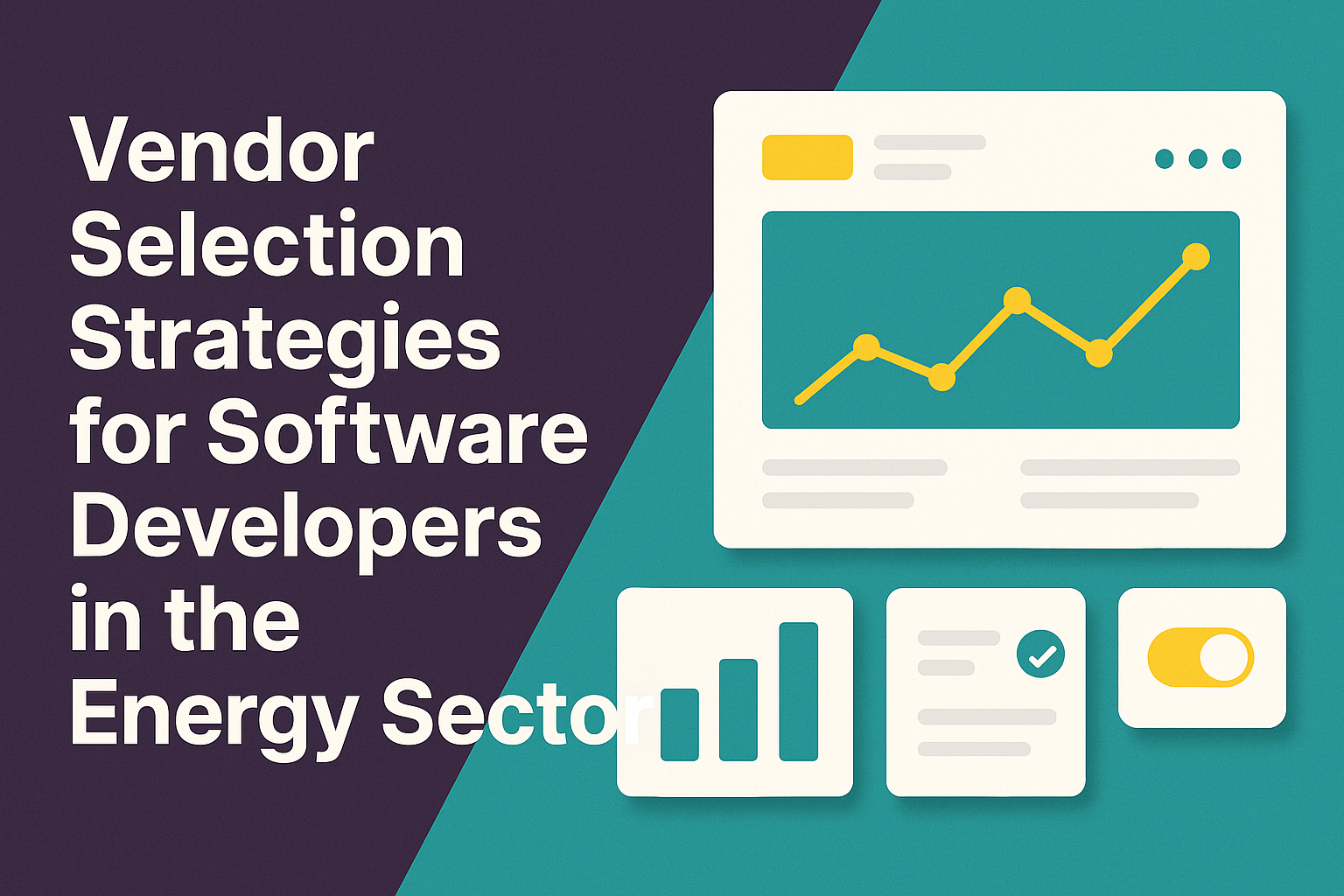Schedule a Demo
The energy sector presents unique challenges for software developers seeking vendors. It's not just about finding a provider that can deliver robust software solutions; it's also about navigating the complex regulatory environment, ensuring compliance with industry-specific standards, and addressing the sector's unique operational needs. In my experience working with energy companies, the right vendor can significantly enhance operational efficiency and innovation, while the wrong choice can lead to costly delays and compliance issues.
When selecting a vendor, software developers in the energy sector should consider several key criteria. First and foremost, the vendor must have a proven track record in the energy industry. This means they should have experience with similar projects and understand the nuances of energy operations. Additionally, the ability to provide scalable solutions that can grow with the company's needs is crucial. Security and compliance are non-negotiable, as the energy sector is heavily regulated and vulnerable to cyber threats. Finally, the vendor's customer support and service level agreements (SLAs) should be robust, ensuring that any issues can be quickly addressed.
One effective strategy for finding the right vendor is to leverage industry networks and associations. These organizations often have directories of vetted vendors and can provide recommendations based on their members' experiences. For instance, the Energy Information Technology Association (EITA) or the Society of Petroleum Engineers (SPE) can be invaluable resources. I've seen firsthand how attending industry conferences and networking events can lead to valuable connections with vendors who specialize in energy solutions.
Online platforms and directories have become increasingly important in the vendor selection process. Websites like Clutch and GoodFirms allow developers to filter vendors by industry, services offered, and client reviews. These platforms provide a wealth of information that can help narrow down the search. However, it's important to approach these reviews with a critical eye, as they may not always reflect the full picture. Cross-referencing with other sources and conducting direct interviews with vendors can provide a more comprehensive understanding of their capabilities.
Due diligence is a critical step in the vendor selection process. This involves more than just reviewing a vendor's portfolio; it requires a deep dive into their financial stability, technical capabilities, and cultural fit. I recommend conducting site visits, if possible, to see the vendor's operations firsthand. Additionally, speaking with current clients can provide insights into the vendor's performance and reliability. Based on available research, individual results may vary, but thorough due diligence can significantly reduce the risk of selecting a vendor that fails to meet expectations.
Balancing cost and quality is a delicate act in the vendor selection process. While it's tempting to opt for the lowest bidder, this can often lead to compromises in quality and service. Instead, consider the total cost of ownership, which includes not just the initial price but also long-term maintenance and support costs. High-quality vendors might charge more upfront, but their solutions can save money in the long run through increased efficiency and fewer issues. In my experience, investing in quality pays off in the energy sector, where reliability is paramount.
In the energy sector, where technology is rapidly evolving, it's crucial to choose a vendor that is innovative and adaptable. A vendor that actively invests in research and development and stays abreast of the latest industry trends can provide cutting-edge solutions that keep your company competitive. Look for vendors that have a history of innovation and are willing to customize their offerings to meet your specific needs. This adaptability can be a game-changer in an industry that is constantly facing new challenges and opportunities.
Selecting a vendor is not just a transaction; it's the beginning of a partnership. The energy sector requires long-term relationships with vendors who understand your business and are committed to your success. A good vendor will work collaboratively with you to solve problems and optimize your operations. They should be seen as an extension of your team, sharing your goals and values. In my work with energy companies, I've seen how strong vendor partnerships can lead to innovative solutions and sustained growth.
The Request for Proposal (RFP) process is a common method for selecting vendors in the energy sector. Crafting a clear and comprehensive RFP is essential to attract the right vendors and ensure they understand your needs. The RFP should detail your project requirements, timelines, and evaluation criteria. It's also important to allow enough time for vendors to respond and to be open to follow-up questions. I've found that a well-structured RFP process can lead to more informed decisions and better vendor matches.
Case studies and references are powerful tools in the vendor selection process. They provide concrete examples of a vendor's work and the results they've achieved for other clients. When evaluating a vendor, ask for case studies that are relevant to your project and industry. Additionally, speaking with references can give you a sense of the vendor's reliability and customer satisfaction. In my experience, a vendor that can provide strong case studies and glowing references is more likely to deliver on their promises.
Finally, consider how your vendor selection can help future-proof your operations. The energy sector is undergoing significant changes, from the shift to renewable energy to the integration of smart grid technologies. Choosing a vendor that is forward-thinking and can help you navigate these changes is crucial. Look for vendors that offer flexible solutions and are committed to ongoing support and upgrades. This approach can ensure that your software investments remain relevant and effective in the face of future industry shifts.
